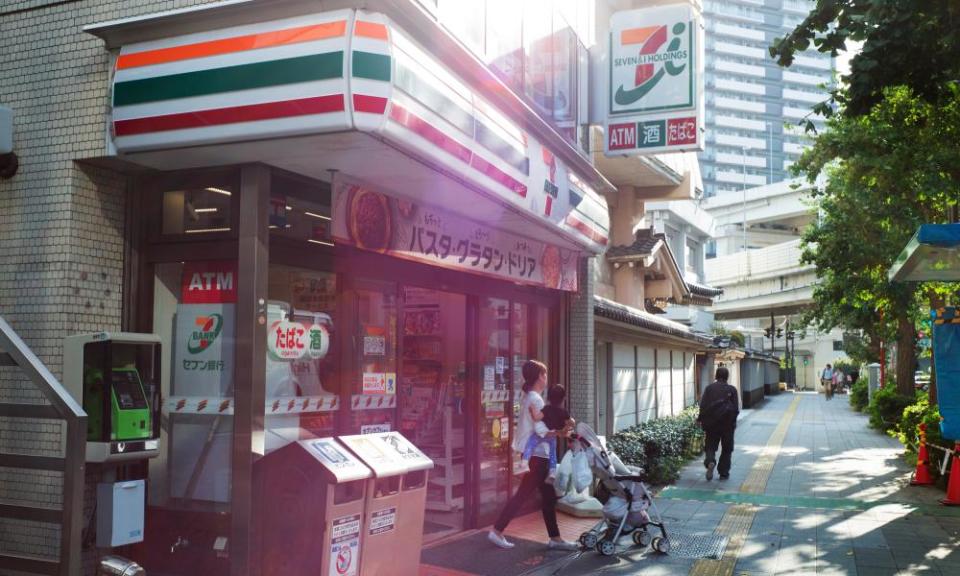Japan's 7-Eleven bans pornographic magazines in run-up to Olympics

Photograph: Bloomberg/Bloomberg via Getty Images
Two major convenience store chains in Japan are to end sales of pornographic magazines before the Rugby World Cup and Tokyo Olympics, citing concerns the material may tarnish the country’s image amid an expected surge in foreign visitors.
7-Eleven Japan and Lawson said they would stop selling adult-themed magazines and manga comics by the end of August, shortly before Japan hosts the Rugby World Cup.
The companies said they also hoped the move would create a more welcoming environment for women and children.
The decision appears to have been partly fuelled by commercial considerations. The proliferation of online pornography means sales of adult magazines at 7-Eleven’s 20,000 stores nationwide account for less than one percent of its total sales, according to Kyodo news agency.
Lawson, meanwhile, will widen its ban to all 14,000 of its outlets after a successful trial in the southern prefecture of Okinawa.
Convenience stories are ubiquitous in Japan, and sales of adult magazines, which are typically displayed alongside regular reading material, have prompted complaints from customers and local attempts to protect minors from “unwholesome” influences.
Ministop banned adult material at its 2,000 stores early last year, while Family Mart has done the same at 2,000 of its 16,000 outlets, Kyodo said.
7-Eleven, Japan’s biggest convenience store chain, said it would leave the final decision to individual store managers, but added it had informed its main supplier of reading material and expected the product to disappear from shelves.
While the rugby tournament and the Tokyo 2020 Olympics will see a spike in visitor numbers, Japan’s tourism boom is expected to continue after the events have finished.
A record 31 million foreign tourists visited Japan last year, according to the government, which has set a target of 40 million visitors by 2020, rising to 60 million by 2030.

 Yahoo Sport
Yahoo Sport 





































